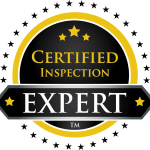Owning a pool can be a source of great joy and relaxation, but it also comes with the responsibility of ensuring the safety and longevity of your pool. A regular pool inspection is a crucial part of maintaining a safe swimming environment and keeping your pool in top condition. In this guide, we’ll walk you through the importance of pool inspections, what to expect during the process, and when it’s time to call in a professional.
What is a Pool Inspection and Why is it Important?
A pool inspection is a thorough examination of all aspects of your pool, from its structural integrity to the functionality of its mechanical systems. The primary goal is to ensure that your pool is safe for use and free from any potential hazards.
Pool inspections are essential for several reasons:
- Safety: Regular inspections help identify safety risks, such as faulty barriers or broken ladders, that could lead to accidents.
- Water Quality: Ensuring the proper chemical balance and cleanliness of your pool water prevents health hazards.
- Preventive Maintenance: Early detection of issues, like small cracks or leaks, can prevent more costly repairs in the future.
- Compliance: Many local regulations require regular pool inspections, especially for commercial properties, to ensure compliance with safety standards.
The Pool Inspection Process: What to Expect
During a pool inspection, a certified inspector will evaluate several key areas of your pool. They will assess the structural integrity by checking for cracks, leaks, and the overall condition of the pool shell. Safety features, such as barriers, gates, and ladders, will be examined to ensure they are secure and meet safety standards. The mechanical systems, including the filtration system, pumps, heaters, and other components, will be inspected to verify proper operation. Additionally, the inspector will test the water’s chemical balance to ensure it is safe for swimming. The inspector will provide a detailed report highlighting any issues found and recommendations for addressing them.

Common Issues Found During Pool Inspections
Some of the most common issues discovered during pool inspections include:
- Structural Problems: Cracks in the pool shell, sinking areas, or signs of water leakage.
- Safety Hazards: Inadequate fencing, malfunctioning gates, or broken ladders and diving boards.
- Mechanical Failures: Issues with pumps, filters, or heaters that can affect the pool’s operation.
- Water Quality Concerns: Improper chemical levels, algae growth, or cloudy water that can pose health risks.
Identifying these issues early can prevent them from escalating into more serious and expensive problems.
How Often and Who Should Perform Pool Inspections?
The frequency of pool inspections depends on factors such as the type of pool and how often it’s used. As a general rule, residential pools should be inspected annually, with additional checks before and after the swimming season. Commercial pools, on the other hand, require more frequent inspections, often quarterly, to meet regulatory requirements and handle heavy usage.
While some routine checks can be done by the pool owner, such as monitoring water quality and checking for visible damage, a certified pool inspector should perform a comprehensive inspection. These professionals have the expertise and equipment to identify issues that may not be obvious to the untrained eye.

Preparing for and Understanding Your Pool Inspection
Before the inspection, it’s important to prepare by:
- Cleaning the Pool Area: Ensure the pool and surrounding area are clean and free of debris.
- Gathering Documentation: Have any previous inspection reports, maintenance records, and pool specifications ready for the inspector.
- Providing Access: Make sure all areas of the pool and its equipment are easily accessible.
After the inspection, the inspector will provide a detailed report. This report will include:
- Key Findings: A summary of any issues identified during the inspection.
- Recommendations: Suggested actions for addressing any problems found.
- Urgency: Indication of which issues need immediate attention and which can be scheduled for later.
Understanding this report is crucial for maintaining your pool in top condition.
When to Call a Professional
While regular DIY checks are important, there are certain signs that indicate it’s time to call in a professional pool inspector. If your pool is losing water more quickly than usual, this could be a sign of a leak that requires professional attention. Persistent issues with pumps, heaters, or filters that don’t resolve with basic troubleshooting may also need expert diagnosis and repair. Additionally, visible damage such as cracks, shifting tiles, or other structural concerns should be inspected by a professional to prevent further damage. Calling a professional at the first sign of trouble can save you time, money, and help avoid potential hazards.
Conclusion
Regular pool inspections are essential for ensuring the safety, longevity, and enjoyment of your pool. By staying proactive with inspections and knowing when to call in a professional, you can keep your pool in excellent condition for years to come. Don’t wait until a small issue becomes a big problem—add on a pool inspection to your home inspection with House Inspection Associates today and enjoy peace of mind knowing your entire property is thoroughly evaluated and secure.


